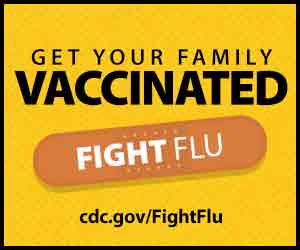Courtesy of San Benito County Public Health Services:
The San Benito County Public Health Services announced today that Influenza A is confirmed in 10 residents and four staff at the Mabie Skilled Nursing Facility.
Staff who have been diagnosed have been told to stay at home. All skilled nursing facility residents are over 60 years of age and all were vaccinated against the flu.
“The vaccine may not be as effective in older people as sometimes their immune system is compromised or not as strong, but the vaccine will still provide protection and possibly lesson symptoms and duration of the illness,” said Dr. Marty Fenstersheib, San Benito County Health Officer.
As a precaution starting today Hazel Hawkins Memorial Hospital has temporarily restricted visitors to all skilled nursing residents in their two facilities.In addition to limiting visitation, all residents and staff of the skilled nursing facility will be given the antiviral medication Tamiflu to either mitigate the symptoms in the those who have been sickened by the flu virus or to help prevent infection in those who may be at risk of becoming infected.

“Even beyond the outbreak we are seeing a surge in the number of flu cases in our county. Based on the number of Tamiflu (flu antiviral medication) being prescribed we can safely say that the number of flu cases have doubled in the past week within our general population,” stated Mary White, Pharmacist with San Benito County Public Health Services.
The Centers for Disease Control (CDC) has declared influenza activity in California “widespread”. Forty-one other states also have widespread flu activity.
Influenza is very common, affecting more than 3 million people in the US every year. Influenza is a contagious respiratory illness caused by influenza viruses. It can cause mild to severe illness. Serious outcomes of flu infection can result in hospitalization or death. Some people, such as older people, young children, pregnant women and people with certain health conditions, such as chronic disease and weakened immune systems, are at high risk of serious flu complications.
The influenza viruses attack the lungs, nose, and throat. Symptoms include fever, chills, muscle aches, cough, congestion, runny nose, sore throat, headaches, and fatigue. Duration of illness varies, but usually resolves within a few days. Influenza spreads easily, through airborne respiratory droplets (coughs or sneezes), skin-to-skin contact (handshakes or hugs), saliva (kissing or shared drinks), and by touching a contaminated surface (doorknob or blanket).

The flu is treated primarily with rest and fluid to let the body fight the infection on its own. Over-the-counter anti-inflammatory pain relievers may help with symptoms. Symptomatic persons should stay at home to prevent spreading the virus.
While flu vaccination is still recommended for people who have not yet gotten vaccinated, antiviral drugs are an important, second line of defense that can be used to treat flu illness. The CDC recommends the use of antiviral drugs as early as possible to treat flu illness in people who are very sick with flu and those at high risk of serious flu complications.
“The best way to prevent the flu is by getting vaccinated each year,” said Dr. Fenstersheib. “Public Health recommends a yearly flu vaccine for everyone 6 months of age and older as the first, and most important step in protecting against this serious disease.
Dr. Fenstersheib continues to add,“getting the flu vaccine as soon as it becomes available each year is best, although it is never too late in the flu season to get one. It takes about two weeks after vaccination for antibodies to develop in the body and provide protection against the flu. Influenza seasons are unpredictable and can begin as early as October and last through May,” said Dr. Fenstersheib.
You can also take some basic steps to protect yourself and family from getting flu and other respiratory infections. Make sure to wash your hands often, cover coughs and sneezes with your sleeve or a tissue, and stay home when you are sick. Medical attention should be sought by people who are in a high risk group, or who are experiencing worsening symptoms. Before you go to a doctor’s office or emergency room, call ahead and tell them about your symptoms.
Besides older adults (over 65), young children and pregnant women, those with chronic diseases should contact their doctor or go to the ER soon after developing flu symptoms. This includes those who are impacted by diabetes, hypertension, asthma, congestive heart failure, active malignancy, and immune system deficiencies.
The following are signs that your body may not be able to fight off the flu on its own:
Difficulty breathing, especially in those with a history of asthma or other respiratory disease
Chest or stomach pain
Dizziness or lightheadedness
Severe vomiting
High fever (over 102)
Unable to drink enough fluids to stay hydrated
With sick children, look for additional signs and seek emergency medical treatment if:
Their lips or skin appear bluish.
They can’t wake up or interact with you.
They have a high fever with a rash.Visit the San Benito County Public Health Services website for updated local information at http://hhsa.cosb.us/publichealth/.
The CDC provides more information about novel coronavirus at https://www.cdc.gov/coronavirus/2019-nCoV/index.html.




